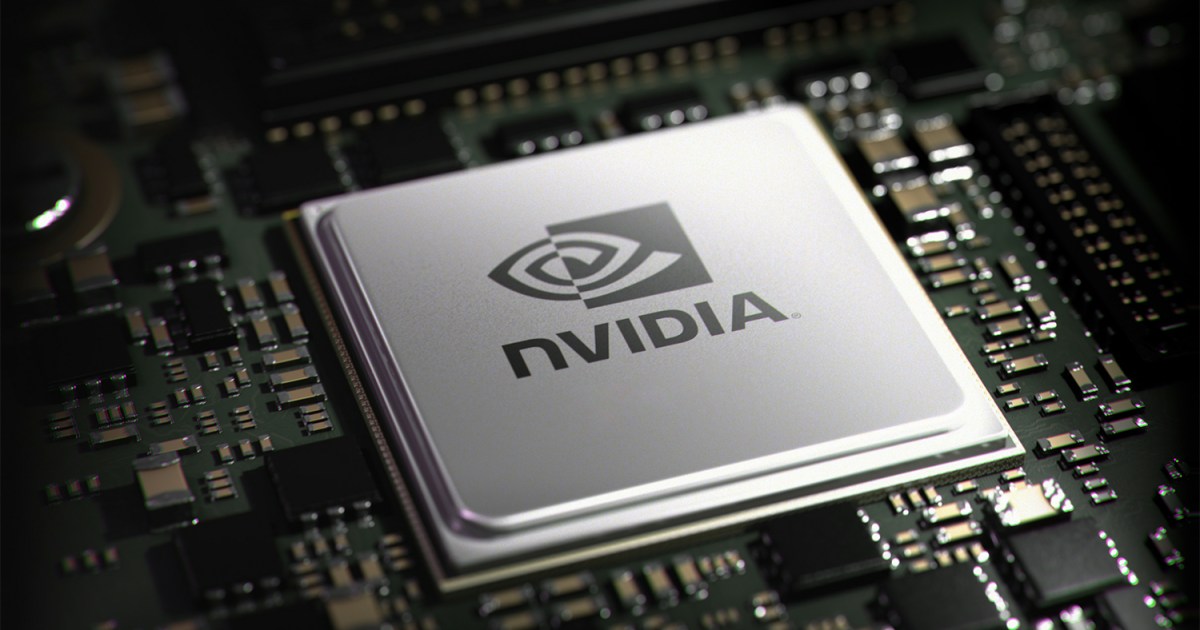Nvidia and MediaTek’s Arm chip could mean cheaper AI laptops
Nvidia and MediaTek are reportedly teaming up to launch a new Arm-based system-on-chip (SoC) aimed at AI-capable Windows PCs. Expected to debut at Computex 2025, the collaboration could introduce a new contender in the AI PC market. The chip...

 Nvidia
Nvidia
Nvidia and MediaTek are reportedly teaming up to launch a new Arm-based system-on-chip (SoC) aimed at AI-capable Windows PCs. Expected to debut at Computex 2025, the collaboration could introduce a new contender in the AI PC market. The chip may offer an alternative to existing solutions from Qualcomm’s Snapdragon X series, Intel’s Core Ultra lineup, and AMD’s Ryzen AI chips.
Notably, Nvidia’s Jensen Huang and MediaTek’s Rick Tsai are scheduled to deliver back-to-back keynotes at Computex on May 19 and 20, respectively. Rumors suggest that companies will announce a new processor lineup that combines MediaTek’s Arm CPUs with Nvidia’s Blackwell GPUs, forming a platform aimed at compact, AI-focused PCs.
According to German outlet Heise Online, Nvidia and MediaTek are preparing two Arm-based chips, the N1 and N1X, with MediaTek providing the CPU and Nvidia supplying the GPU. These chips are expected to be tied to the GB10 platform, though a scaled-down CPU configuration is possible, reportedly featuring 20 cores (10 Cortex-X925 and 10 Cortex-A725).
Currently, Windows-on-Arm laptops rely exclusively on Qualcomm’s Snapdragon processors, which are mostly limited to premium, mobility-focused devices. Thanks to Nvidia’s extensive GPU driver support, an area where Qualcomm’s Adreno has struggled, the new chips could appeal to gamers. On the other hand, MediaTek could launch a more affordable variant with a smaller Nvidia GPU, opening the door for budget-friendly Arm-based laptops.
While Nvidia and MediaTek may unveil their new Arm-based chip at Computex, actual laptops and desktops featuring the processor may not hit the market for some time. A report from SemiAccurate suggests that technical issues could delay the chips’ completion, possibly pushing device launches into 2026.
Meanwhile, MediaTek has reportedly secured significant packaging capacity, likely for the new processors, using FCBGA (Flip Chip Ball Grid Array) technology, which enables the CPU and GPU to be combined before being installed in notebooks. According to Digitimes, the unusually large order was placed around the end of last year, though it’s unclear if the potential delays were already anticipated.
Please enable Javascript to view this content
Kunal Khullar is a computing writer at Digital Trends who contributes to various topics, including CPUs, GPUs, monitors, and…
Apple’s AI-focused M5 chip enters mass production
Apple has begun the mass production of its M5 chip, which is set to power next-generation products, including the upcoming Mac series and iPad. Coinciding with long-standing reports, the Cupertino-based tech brand is establishing a new node process for packaging the semiconductor. The technology is intended to provide improved AI performance on the devices it powers, according to ETnews.
Industry sources told the Korean publication that Apple began packaging the M5 chip last month. Taiwan's TSMC began the initial production of the M5 chip circuit using its 3nm process (N3P). The technology is expected to improve the power efficiency of the M5 chip by between 5% and 10%, and performance by 5% in comparison to the previous M4 chip, which will aid in improving AI performance on upcoming Mac and iPad models.
Nvidia celebrates Trump, slams Biden for putting AI in jeopardy
In response to new export restrictions placed on AI GPUs, Nvidia posted a scathing blog criticizing the outgoing Biden-Harris administration. The administration's Interim Final Rule on Artificial Intelligence Diffusion largely targets China with restrictions on AI GPUs, according to Newsweek.
Nvidia disagrees. "While cloaked in the guise of an 'anti-China' measure, these rules would do nothing to enhance U.S. security. The new rules would control technology worldwide, including technology that is already widely available in mainstream gaming PCs and consumer hardware. Rather than mitigate any threat, the new Biden rules would only weaken America’s global competitiveness, undermining the innovation that has kept the U.S. ahead," wrote Nvidia's vice president of government of affairs Ned Finkle.
Nvidia may enter the Arm CPU market after all
According to a recent Reuters report, Nvidia CEO Jensen Huang has hinted at broader ambitions for the Arm-based CPU within the GB10 Grace Blackwell chip, developed in collaboration with MediaTek. During an investor presentation, Huang alluded to plans for the new desktop CPU by saying, “You know, obviously we have plans.” However, he also added that he would “wait to tell [us]” the details. Cryptic as it may be, this message -- combined with Nvidia's recent developments -- could mean Nvidia might have serious plans for the CPU market.
Huang also noted that MediaTek, the chip's co-developer, has its own aspirations. “They could provide [the CPU] to us, or they could keep it for themselves and serve the market. It was a great win-win,” Huang said, suggesting MediaTek might market the chip independently.

 BigThink
BigThink 
















/cdn.vox-cdn.com/uploads/chorus_asset/file/18298254/twarren_190709_3533_0004.jpg)













.jpg&h=630&w=1200&q=100&v=90ed771b68&c=1)




